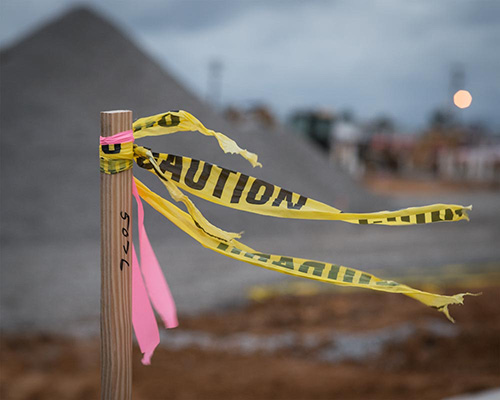
Miranda Thompson and other environmental activists rallied together in Washington D.C. last year to protest the progress of the cross-country Keystone XL pipeline, which was voted on by the Senate on Nov. 18.
Even though Congress didn’t approve the controversial cross-country Keystone XL pipeline in 2013, Murray State environmental activist Miranda Thompson said she’s prepared to rally against it next year if the new Republican-controlled Congress pushes for it again.
Thompson, junior from Louisville, Ky., said she was not able to feel the happiness she wanted after such a narrow win.
“The Senate majority is about to shift in a way that I fear will favor the bill being passed. If they held another protest, I would be there in a heartbeat,” she said.
The Keystone XL Pipeline project, which was intended to extend an oil pipeline from Canada to the Mexican Gulf, did not pass Congress when the project failed to get the necessary 60 votes in the Senate Nov. 18.
Though the House passed the bill, the bill did not gain the 60 votes needed to pass the Senate. The end tally was 59 for and 41 against, with one vote determining the outcome.
About 40 percent of the pipeline is completed, with 298 miles of pipeline stretching from Nebraska to Oklahoma and another 485 miles existing in Texas.
The bill remains controversial. Those in favor argue the pipeline would create jobs, while those against the bill argue that the oil sands the pipeline would carry from Canada to Texas is too costly and too dangerous to refine.
Oil sands are a combination of clay, sand, water and bitumen. Bitumen is a heavy, black viscous oil. Oil sands are mined, processed and then refined into oil, according to the Oil Shale and Tar Sands Programmatic Information Center.
Thompson, a member of the Murray Environmental Student Society, went to Washington D.C. with four other MESS members to protest the bill Feb. 17, 2013. They stayed in a home that frequently housed protesters in D.C., spending less than 20 hours in Washington and a total of 50 hours on the road.
“The whole weekend was full of energy,” Thompson said. “I was constantly surrounded by people with one purpose and that was powerful. In such a large country where it feels like we are always pointing fingers at everyone, it felt good to have a sense of unity with 25,000 people all at one time.”
Miranda Blackwell, sophomore from Madisonville, Ky., believes the bill should not have passed, although she thinks the pipeline would have brought job opportunities.
“I also think we shouldn’t dig up the earth more to put a pipe down,” Blackwell said.

Blackwell said she doesn’t think students are aware of the Keystone XL pipeline issue because the pipeline will not run through Kentucky. Thompson said though the pipeline would create jobs, they would only be temporary because the oil would eventually run dry.
Terence Holmes, professor of marketing and the chair of the department of management marketing and business administration, was disappointed when the bill did not pass.
“Results of the election showed that a majority of Americans want to return to policies that foster economic growth, which will help overcome stagnant job creation,” Holmes said. “The pipeline on its own would do so directly, but it would also serve as a sign that additional policies to help are forthcoming.”
He said in January when the Republicans take control of the Senate, they will push this issue again. Kentucky U.S. Mitch McConnell, who will be majority leader, supports the pipeline.
“Eight or nine Democratic senators will need to change their minds for the bill to pass,” he said. “If the bill is passed it will be followed by a veto from the president.”
Holmes does not know how aware students are of the Keystone project, but believes they should be.
“As they graduate and seek jobs, it is less likely they’ll have a strong set of options if heavy-handed government regulation is dragging down the economy, as has been the case over the past several years,” Holmes said.
Thompson fears if the bill is passed the reality of harm to the environment will be hidden.
“Even if, in the best case scenario, no leaks or spills occur, the passing of the bill will continue to emphasize the notion in our country that wealth is more important than health,” Thompson said.
Story by Sara Gantz, Contributing writer